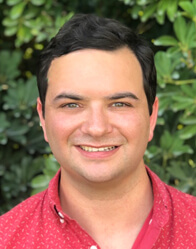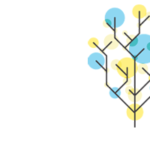Season 1 – Episode 27 – Academic Career Pathways (Part 2)
The COVID-19 pandemic changed many individuals’ outlooks on their professional and personal life choices, which lead to the ‘Great Resignation’ in 2021 and 2022. Additionally, market trends in both academia and the private sector have changed since the beginning of the COVID-19 pandemic. While individuals might decide to stay in academia or leave, their skill sets are transferable between both sectors. These transferable skills can include writing instructional materials, researching specific topics, and communicating with a wide audience. While academic and non-academic careers both have tradeoffs, starting a career in one pathway does not mean an individual cannot transfer to a different pathway later in their career. The choice to decide between an academic and non-academic career is often personal and difficult.
Episode Transcript
Click to expand/collapse
Darren Gaddis: From CITI Program, I’m Darren Gaddis, and this is On Campus. Today, the second episode, discussing what are academic and non-academic careers, why one might leave academia and how to identify transferable skills. I spoke with Sarah Melton, product education strategist at Sprout Social, where she creates educational content and training materials. She previously worked in academic libraries and digital scholarship centers. Sarah received her PhD from Emory University in 2017. As a reminder, this podcast is for educational purposes only. It is not intended to provide legal advice or guidance. You should consult with your organization’s attorneys if you have questions or concerns about relevant laws and regulations discussed in this podcast. Additionally, the views expressed in this podcast are solely those of the presenter. Hi, Sarah. Thank you for joining me today.
Sarah Melton: Thank you for having me, it’s great to be here.
Darren Gaddis: Picking up where we left off earlier this week, what are transferable academic skills one might use in the private sector?
Sarah Melton: Yeah. So, people will often talk about, it’s easy, you as an academic, you do research, and writing, and teaching, and it’s easy to talk about those things. It’s not wrong because those are all things that I do in my current role, but talking about them in a way that is understandable can be difficult. So, in my current position, for example, I do all of those things. So research might look like interviewing users or doing other types of user research. I still do things like literature reviews. They just look a little different and it’s working with different types of literature, but I’m still looking for things like case studies or other types of research that other people have done to synthesize that and pull those findings out.
I still do a lot of teaching. That’s kind of the core of my current role. I’m a product education strategist so I create a lot of educational materials and that encompasses technical writing but also other things. So, those are some skills that are specific to the role that I’m in right now, but there’s skills that a lot of people in academia have. And the specific way that a different job may or may not utilize them, of course, depends on the particular industry and the role that you’re interested in. But I do think that those skills, broadly speaking, are in fact transferable and it’s not something that I think I necessarily understood while I was going through a PhD program.
Other ways to identify what those skills might be, of course, beyond kind of looking at things like LinkedIn profiles or resumes and job descriptions can actually look like working with a career coach, as I mentioned, or somebody who has made that transition. I think doing those types of informational interviews can be really helpful just to hear, of course, what somebody’s experience is, but also how they position themselves. So, definitely think that it can feel daunting, but it’s very possible and in fact, I do think that those skills are really valuable.
Darren Gaddis: Thinking more about an individual who might leave academia, how are they able to stay connected within the field of higher education if they wanted to do such?
Sarah Melton: Yeah. I spent actually a fair amount of time the last few months still working on some projects that I had been involved in kind of on the side from my academic career and really actually found that work to be really interesting to see it from a different perspective, to see it from somebody who was no longer kind of in the middle of some of those academic conversations in the same way. So, it wasn’t a problem for me to stay involved in those communities. And of course, you can still do things like go to conferences and even do research. There are people who take non-academic or alternate academic careers and still do a lot of research on the side. That’s kind of a personal decision.
But generally speaking, there are a lot of ways now that academic communities stay in touch that are not necessarily dependent on being in a university. And I think that the last couple of years of the pandemic have accelerated some of that needing to find ways to talk with people virtually or asynchronously. So, I would say if that’s something that you are interested in, there probably are things like, of course, LISTSERVs, but Slack communities, Discord communities, places where people in your field are gathering virtually that are still pretty easy to stay in touch with if that’s of interest to you.
Darren Gaddis: From your own perspective and journey, have you seen a trend in individuals moving from academia to the private sector since the beginning of the COVID-19 pandemic?
Sarah Melton: Yeah. So, I don’t have any hard numbers here, but I know that there have been a number of articles written about this kind of phenomenon. And I will say anecdotally, I definitely have. I think a lot of the reasons that people are making that shift are similar to some of the reasons that I had, wanting that flexibility and also sometimes just wanting something new, wanting to see kind of what else is out there. So, I think that’s definitely happening. It’s not isolated though. There’s a lot of talk, of course, about the great resignation, right? And so, there were a lot of people also within the private sector who were moving to different fields, to different industries, sometimes leaving the workforce entirely, so I do think that that is a trend that I saw within academia but it’s not necessarily isolated to academia.
Darren Gaddis: What else should we know about career pathways for academics and transferable skills in general?
Sarah Melton: Some of the things that have been really helpful for me in making this transition are things like networking. And everyone always talks about networking and I know, it’s easy to roll your eyes at. And I don’t really mean going up to people at parties right in and asking about a job, although I do actually know people who have gotten hired that way. I’m thinking more about some of what I described earlier with being in particular virtual communities or even reaching out to people on LinkedIn.
If there’s a person who is maybe an alumni of your program and they’re working in an industry or in a job that you think is really interesting, reaching out to them, they may not respond. But it’s very common to do that kind of cold outreach and people generally don’t think it’s weird so that’s definitely something that can be helpful. The caution that I tell everyone about making this kind of transition is it’s generally speaking, and this is not always the case, but academic jobs have perception of having a lot of stability. And that depends on the particular role, of course, there are a lot of people who are on very temporary contracts and that’s not stable. But in other types of academic roles, there is a fair amount of stability.
And that does look very different in the private sector. We are heading into some macroeconomic conditions that feel a little scary and nobody kind of knows what hiring’s going to look like. In the tech sector, there have been a lot of very high profile companies that have done lots of layoffs. So, that’s always a possibility. And people should make any kind of career transition with their eyes open. The flip side is that there are also just more non-academic jobs than there are academic jobs. So, it’s certainly something to consider but I wouldn’t necessarily let that hold you back if it’s something you’re interested in.
I also think that when it comes to interviewing for non-academic jobs, there are a couple of things that I found really helpful to spend some time thinking about. One was what I wanted and what I valued in a job environment and being really upfront about that. Not in a way that was derogatory towards past employers or anything, that’s never a good idea, but just thinking about what is it that I value in a career and in my day to day work environment. And making sure that the companies that I was interviewing at understood that and also had those same values because I didn’t want to make a change and then end up totally miserable.
And so, I think knowing what it is that you value and the type of environment is important. And the only other thing I would say in terms of interviewing advices, have a lot of specific examples that you can draw on. And you will probably have to change the way you explain them, but from an academic audience to a non-academic audience, but I found it really useful to have three, four, five examples of times I explained something complicated to somebody else, important considerations when breaking down complex topics.
And examples like those that also I felt like really showcased my academic background because that’s a lot of what you do as an academic, is synthesize information, break it down, hopefully make it understandable and digestible to an audience. So, those are some things that I definitely noticed as trends when I was interviewing as well. And I wanted to pass those along because I think they’re probably helpful to academic audiences.
Darren Gaddis: Sarah, thank you for joining me for the special two-part episode of On Campus.
Sarah Melton: Thank you so much for having me.
Darren Gaddis: Be sure to follow, like, and subscribe to On Campus with the CITI Program to stay in the know. I also invite you to review our content offerings regularly as we are continually adding new courses and webinars that may be of interest to you. All of our content is available to you anytime through organizational and individual subscriptions. You may also be interested in CITI Program’s Open Access Publishing webinar. Please visit the CITI Program’s website to learn more about all of our offerings.
How to Listen and Subscribe to the Podcast
You can find On Campus with CITI Program available from several of the most popular podcast services. Subscribe on your favorite platform to receive updates when episodes are newly released. You can also subscribe to this podcast, by pasting “https://feeds.buzzsprout.com/1896915.rss” into your your podcast apps.
Recent Episodes
- Season 1 – Episode 26: Academic Career Pathways (Part 1)
- Season 1 – Episode 25: Title IX: Women in Athletics
- Season 1 – Episode 24: Universal Design: Campus Infrastructure
- Season 1 – Episode 23: Open Access: Federal Rule Change
Meet the Guest
Sarah Melton, PhD – Educational Consultant
As the Head of Digital Scholarship at Boston College, Sarah led a group that teaches technical topics. Her team facilitated data-driven research, project creation, and digital publishing. Now Sarah consults on topics related to digital scholarship, such as open access publishing. Sarah received her PhD from Emory University in 2017.
Meet the Host
Darren Gaddis, Host, On Campus Podcast – CITI Program
He is the host of the CITI Program’s higher education podcast. Mr. Gaddis received his BA from University of North Florida, MA from The George Washington University, and is currently a doctoral student at Florida State University.











